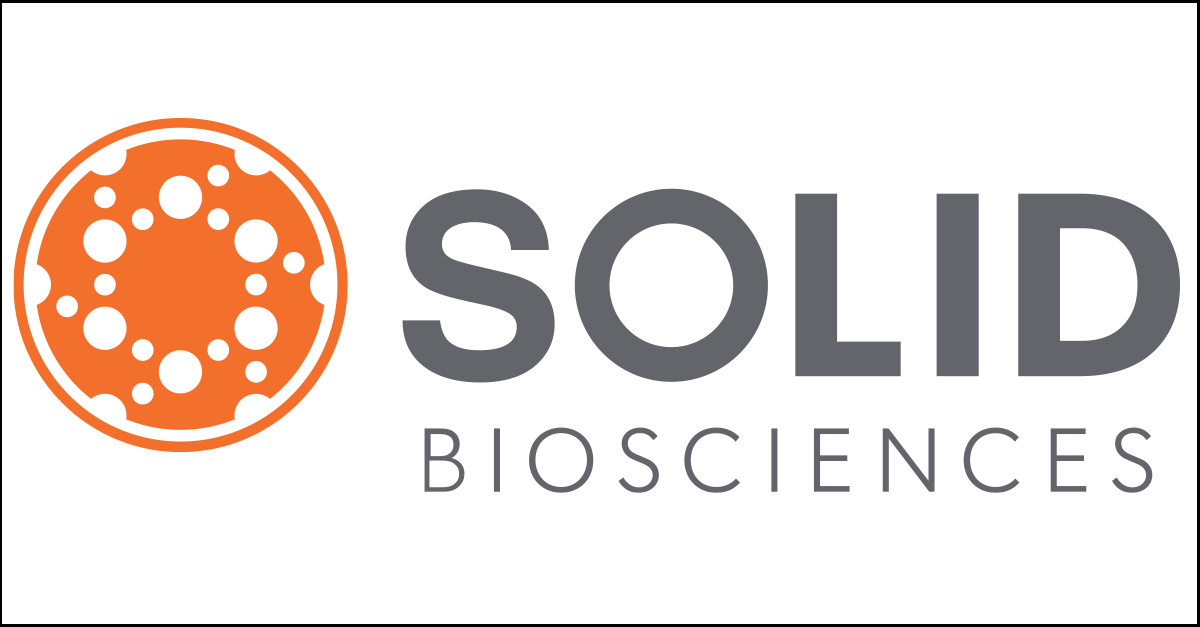
We are pleased that Solid Biosciences has announced a strategic collaboration and license agreement with Ultragenyx Pharmaceutical. Emil Kaakis, CEO of Ultragenyx, has been focused on rare diseases across his career and has considerable experience in Duchenne.
Together Solid and Ultragenyx will focus on the development and commercialization of new gene therapies for Duchenne, to develop products that combine Solid’s differentiated microdystrophin construct, Ultragenyx’s HeLa producer cell line (PCL) manufacturing platform, and AAV8 variants. Additional information on the terms of collaboration can be found in Solid’s announcement below.
Read Solid’s Press Release:
Ultragenyx and Solid Biosciences Announce Strategic Collaboration to Develop and Commercialize New Gene Therapies for Duchenne Muscular Dystrophy
-Collaboration combines Solid’s differentiated microdystrophin construct and Ultragenyx’s HeLa PCL manufacturing platform for use with AAV8 and variants-
-Solid receives $40 million upfront via equity investment at a premium; up to $255 million in milestones plus royalty payments-
-Solid retains exclusive rights to all other uses of its microdystrophins, including its existing SGT-001 program
Novato, Calif. and Cambridge, Mass. — October 23, 2020 — Ultragenyx Pharmaceutical Inc. (Nasdaq: RARE), a biopharmaceutical company focused on the development and commercialization of novel products for serious rare and ultra-rare diseases, and Solid Biosciences Inc. (Nasdaq: SLDB), a life sciences company focused on advancing meaningful therapies for Duchenne muscular dystrophy (Duchenne), today announced a strategic collaboration and license agreement to focus on the development and commercialization of new gene therapies for Duchenne. The parties will collaborate to develop products that combine Solid’s differentiated microdystrophin construct, Ultragenyx’s HeLa producer cell line (PCL) manufacturing platform, and AAV8 variants. The collaboration also brings together Solid’s expertise in muscle biology and Ultragenyx’s expertise in bringing novel therapies to patients with rare diseases.
Under the terms of the collaboration, Solid granted Ultragenyx an exclusive license for any pharmaceutical product that expresses Solid’s proprietary microdystrophin construct from AAV8 and variants thereof in clade E for use in the treatment of Duchenne and other diseases resulting from lack of functional dystrophin, including Becker muscular dystrophy. Ultragenyx has made a $40 million investment in Solid and has agreed to pay up to $255 million in cumulative milestone payments per product upon achievement of specified milestone events, and tiered royalties on worldwide net sales at low double digit to mid-teens percentages. Upon achievement of proof-of-concept, Solid has the right to opt-in to co-fund collaboration programs in return for participation in a profit share or increased royalty payments.
“We believe that Solid’s microdystrophin is best-in-class with its unique neuronal nitric oxide synthase binding domain,” said Emil D. Kakkis, MD, PhD, Chief Executive Officer and President of Ultragenyx. “By using an AAV8 variant validated in prior human and other studies combined with our scalable, efficient HeLa producer cell line platform, we believe we can leverage our mutual strengths to develop a high-quality AAV-based treatment alternative for Duchenne.”
“Ultragenyx has a demonstrated track record of success in developing and commercializing innovative therapies for rare diseases,” said Ilan Ganot, Co-Founder, President and Chief Executive Officer at Solid Biosciences. “We believe it is the partner of choice for exploring new gene therapy opportunities for patients with Duchenne.”
Solid’s proprietary microdystrophin construct has exhibited functional benefit in preclinical models. In preclinical studies, animals expressing a microdystrophin capable of restoring neuronal nitric oxide synthase (nNOS) resisted fatigue better than those expressing a microdystrophin that does not. Patients dosed with Solid’s proprietary microdystrophin construct at the 2E14 vg/kg dose in Solid’s ongoing IGNITE DMD clinical trial have also preliminarily demonstrated nNOS activity and function, further validating these preclinical results. Solid expects to dose the next patient in the IGNITE DMD clinical trial, using SGT-001 produced using its improved HSV manufacturing process, in the first quarter of 2021.
Ultragenyx intends to use its AAV-based HeLa PCL platform including HeLa 3.0 improvements for the development of product candidates. The platform enables large 2,000 liter commercial-scale AAV-based gene therapy product manufacturing. The PCL platform yields high-quality product from a highly reproducible, highly scalable, and less expensive process – a distinct vantage in higher dose indications like Duchenne. The capsid planned is an AAV8 variant with a favorable immunological profile that has been used successfully in the large scale 2,000 liter production process.



 by: Parent Project Muscular Dystrophy
by: Parent Project Muscular Dystrophy

